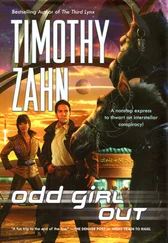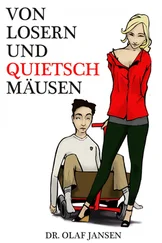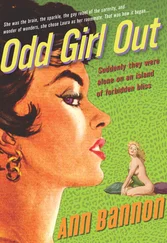Olaf Stapledon - Odd John
Здесь есть возможность читать онлайн «Olaf Stapledon - Odd John» весь текст электронной книги совершенно бесплатно (целиком полную версию без сокращений). В некоторых случаях можно слушать аудио, скачать через торрент в формате fb2 и присутствует краткое содержание. Город: London, Год выпуска: 2012, ISBN: 2012, Издательство: Hachette UK, Жанр: Фантастика и фэнтези, на английском языке. Описание произведения, (предисловие) а так же отзывы посетителей доступны на портале библиотеки ЛибКат.
- Название:Odd John
- Автор:
- Издательство:Hachette UK
- Жанр:
- Год:2012
- Город:London
- ISBN:9780450038570
- Рейтинг книги:5 / 5. Голосов: 1
-
Избранное:Добавить в избранное
- Отзывы:
-
Ваша оценка:
- 100
- 1
- 2
- 3
- 4
- 5
Odd John: краткое содержание, описание и аннотация
Предлагаем к чтению аннотацию, описание, краткое содержание или предисловие (зависит от того, что написал сам автор книги «Odd John»). Если вы не нашли необходимую информацию о книге — напишите в комментариях, мы постараемся отыскать её.
Odd John — читать онлайн бесплатно полную книгу (весь текст) целиком
Ниже представлен текст книги, разбитый по страницам. Система сохранения места последней прочитанной страницы, позволяет с удобством читать онлайн бесплатно книгу «Odd John», без необходимости каждый раз заново искать на чём Вы остановились. Поставьте закладку, и сможете в любой момент перейти на страницу, на которой закончили чтение.
Интервал:
Закладка:
I was not much impressed by this tirade. I said the best minds had outgrown that old tribal god, and the rest would follow the best minds in the long run. John’s laughter disconcerted me.
“The best minds!” he said. “One of the main troubles of your unhappy species is that the best minds can go even farther astray than the second best, much farther than the umpteenth best. That’s what has been happening during the last few centuries. Swarms of the best minds have been leading the populace down blind alley after blind alley, and doing it with tremendous courage and resource. Your trouble, as a species, is that you can’t keep hold of everything at once. Any one who is very wide awake toward one set of facts invariably loses sight of all the other equally important sets. And as you have practically no inner experience to orientate you, compass-wise, to the cardinal points of reality, there’s no telling how far astray you’ll go, once you start in the wrong direction.”
Here I interjected, “Surely that is one of the penalties of being gifted with intelligence; it may lead one forward, but it may lead one badly astray.”
John replied, “It’s one of the penalties of being more than beast and less than fully human. Pterodactyls had a great advantage over the old-fashioned creepy crawly lizards, but they had their special dangers. Because they could fly a bit, they could crash. Finally, they were outclassed by birds. Well, I’m a bird.”
He paused, and then said, “Centuries ago all the best minds were in the Church. In those days there was nothing to compare with Christianity for practical significance and theoretical interest. And so the best minds swarmed upon it, and generation after generation of them used their bright intelligences on it. Little by little they smothered the actual living spirit of religion, with their busy theorizing. Not only so but they also used their religion, or rather their precious doctrines, to explain all physical events. Presently there came along a generation of best minds that found all this ratiocination very unconvincing, and began watching how things really did happen in physical nature. They and their successors made modern science, and gave man physical power, and changed the face of the earth. All this was as impressive in its own way as the effects of religion had been, real live religion, in a quite different way, centuries earlier. So now nearly all the best minds buzzed off to science, or to the job of working out a new scientific view of the universe and a new scientific way of feeling and acting. And being so impressed by science and by industry and the business attitude to life, they lost whatever trace of the old religion they ever had, and also they became even more blind to their own inner nature than they need have been. They were too busy with science, or industry, or empire-building, to bother about interior things. Of course, a few of the best minds, and some ordinary folk, had mistrusted fashionable thought all the way through. But after the war mistrust became widespread. The war made Nineteenth Century culture look pretty silly, didn’t it? So what happened? Some of the best minds (the best minds, mind you) tumbled helter-skelter back to the Churches. Others, the most social ones, declared that we ought all to live to improve mankind, or to make the future generations happy. Others, feeling that mankind was really past hope, just struck a fine attitude of despair, based either on contempt and hate of their fellows or on a compassion which was at bottom self-pity. Others, the bright young things of literature and art, set out to enjoy themselves as best they might in a crashing world. They were out for pleasure at any price, pleasure not entirely unrefined. For instance, though they demanded unrestrained sexual pleasure, it was to be highly conscious and discriminating. They also demanded aesthetic pleasure of a rather self-indulgent sort, and the thoroughly self-indulgent pleasure of tasting ideas, just for their spiciness or tang, so to speak. Bright young things! Yes, blowflies of a decaying civilization. Poor wretches! How they must hate themselves, really. But damn it, after all, they’re mostly good stuff gone wrong.”
John had recently spent some weeks studying the intelligentsia. He had made his entry into Bloomsbury by acting the part of a precocious genius, and allowing a well-known writer to exhibit him as a curio. Evidently he flung himself into the life of these brilliant and disorientated young men and women with characteristic thoroughness, for when he returned he was something of a wreck. I need not retail his account of his experiences, but his analysis of the plight of the leaders of our thought is worth reporting.
“You see,” he said, “they really are in a sense the leaders of thought, or leaders of fashion in thought. What they think and feel to-day, the rest think and feel next year or so. And some of them really are, according to the standards of Hom. sap ., first-class minds, or might have been, in different circumstances, (Of course, most are just riff-raff, but they don’t count.) Well, the situation’s really very simple, and very desperate. Here is the centre to which nearly all the best sensibility and best intellect of the country gets attracted in the expectation of meeting its kind and enriching its experience; but what happens? The poor little flies find themselves caught in a web, a subtle mesh of convention, so subtle in fact that most of them are unaware of it. They buzz and buzz and imagine they are free fliers, when as a matter of fact each one is stuck fast on his particular strand of the web. Of course, they have the reputation of being the most unconventional people of all. The centre imposes on them a convention of unconventionality, of daring thought and conduct. But they can only be ‘daring’ within the limits of their convention. They have a sameness of intellectual and moral taste which makes them fundamentally all alike in spite of their quite blatant superficial differences. That wouldn’t matter so much if their taste were really discriminate taste, but it’s not, in most cases; and such innate powers of precision and delicacy as they actually have get dulled by the convention. If the convention were a sound one, all might be well, but it’s not. It consists in trying to be ‘brilliant’ and ‘original,’ and in craving “experience.” Some of them are brilliant and original according to the standards of your species; and some of them have the gift for experience. But when they do achieve brilliance and experience, this is in spite of the web, and consists at best in a certain flutter and agitation, not in flight. The influence of the all-pervading convention turns brilliance into brightness, originality into perversity, and deadens the mind to all but the cruder sorts of experience. I don’t mean merely crudity in sex-experience and personal relations, though indeed their quite sound will to break the old customs and avoid sentimentality at all costs has led them in the end to a jading and coarsening extravagance. What I mean is crudity of—well, of spirit. Though they are often very intelligent (for your species) they haven’t got any of the finer aspects of experience to use their intelligence on . And that seems to be due partly to a complete lack of spiritual discipline, partly to an obscure, half-conscious funk. You see they’re all very sensitive creatures, very susceptible to pleasure and pain; and early in their lives, whenever they bumped into anything like a fundamental experience, they found it terribly upsetting. And so they formed habits of avoiding that sort of thing. And they made up for this persistent avoidance by drenching themselves in all sorts of minor and superficial (though sensational) experiences; and also by talking big about Experience with a capital E, and buzzing intellectually.”
Читать дальшеИнтервал:
Закладка:
Похожие книги на «Odd John»
Представляем Вашему вниманию похожие книги на «Odd John» списком для выбора. Мы отобрали схожую по названию и смыслу литературу в надежде предоставить читателям больше вариантов отыскать новые, интересные, ещё непрочитанные произведения.
Обсуждение, отзывы о книге «Odd John» и просто собственные мнения читателей. Оставьте ваши комментарии, напишите, что Вы думаете о произведении, его смысле или главных героях. Укажите что конкретно понравилось, а что нет, и почему Вы так считаете.












